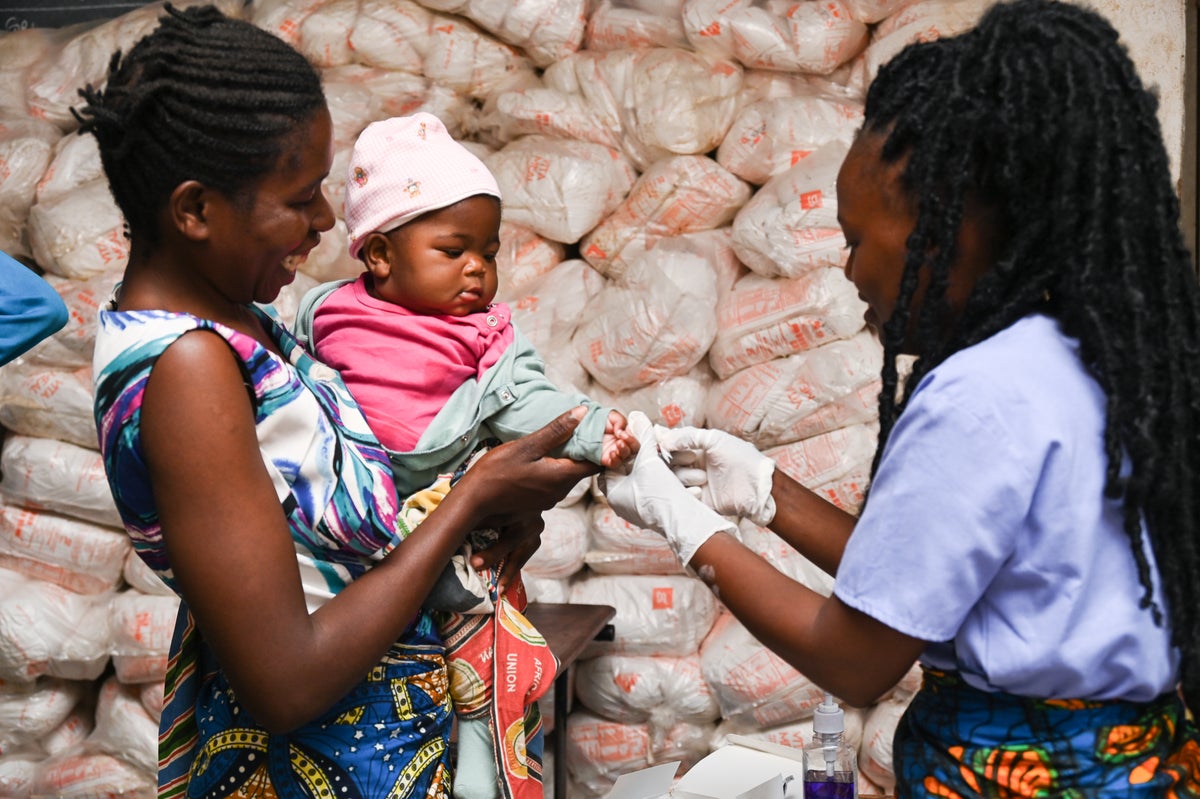6 July 2023 - Twelve countries across Africa are set to receive 18 million doses of the first-ever malaria vaccine, marking a critical step forward in the fight against one of the leading causes of death on the continent.
“This vaccine has the potential to be very impactful in the fight against malaria, and when broadly deployed alongside other interventions, it can prevent tens of thousands of future deaths every year,” said Thabani Maphosa, Managing Director of Country Programmes Delivery at Gavi, the Vaccine Alliance.
“While we work with manufacturers to help ramp up supply, we need to make sure the doses that we do have are used as effectively as possible, which means applying all the learnings from our pilot programmes as we broaden out to a new total of 12 countries.”
Malaria remains one of Africa’s deadliest diseases
Malaria remains one of Africa’s deadliest diseases, killing nearly half a million children each year under the age of 5, and accounting for approximately 95 per cent of global malaria cases and 96 per cent of deaths in 2021.

"Nearly every minute, a child under 5 years old dies of malaria. For a long time, these deaths have been preventable and treatable; but the roll-out of this vaccine will give children, especially in Africa, an even better chance at surviving. As supply increases, we hope even more children can benefit from this life-saving advancement."
“The malaria vaccine is a breakthrough to improve child health and child survival; and families and communities, rightly, want this vaccine for their children,” said Dr Kate O’Brien, WHO Director of Immunisation, Vaccines and Biologicals. “This first allocation of malaria vaccine doses is prioritised for children at highest risk of dying of malaria. We will work tirelessly to increase supply until all children at risk have access.”
Since 2019, Ghana, Kenya and Malawi have been delivering the malaria vaccine through the Malaria Vaccine Implementation Programme (MVIP), coordinated by WHO and funded by Gavi, the Vaccine Alliance, the Global Fund to Fight AIDS, Tuberculosis and Malaria, and Unitaid.
The RTS,S/AS01 vaccine has been administered to more than 1.7 million children in Ghana, Kenya and Malawi since 2019 and has been shown to be safe and effective, resulting in a substantial reduction in severe malaria and a fall in child deaths. At least 28 African countries have expressed interest in receiving the malaria vaccine.
The vaccine will be included in routine immunisation programmes for the first time
In addition to Ghana, Kenya and Malawi, the initial 18 million doses will be allocated to nine more countries, including Benin, Burkina Faso, Burundi, Cameroon, the Democratic Republic of the Congo, Liberia, Niger, Sierra Leone and Uganda. This will be the first time the vaccine has been included their routine immunisation programmes.
The first doses of the vaccine are expected to arrive in countries during the last quarter of this year, with countries starting to roll them out by early 2024.
Annual global demand for malaria vaccines is estimated at 40–60 million doses by 2026 alone, growing to 80–100 million doses each year by 2030. In addition to the RTS,S/AS01 vaccine, developed and produced by GSK, and in the future supplied by Bharat Biotech, it is expected that a second vaccine, R21/Matrix-M, developed by Oxford University and manufactured by Serum Institute of India (SII), could also be prequalified by WHO soon.


